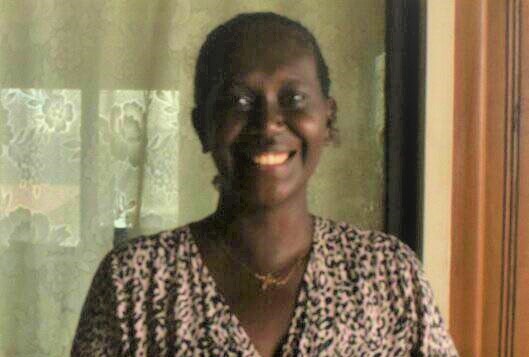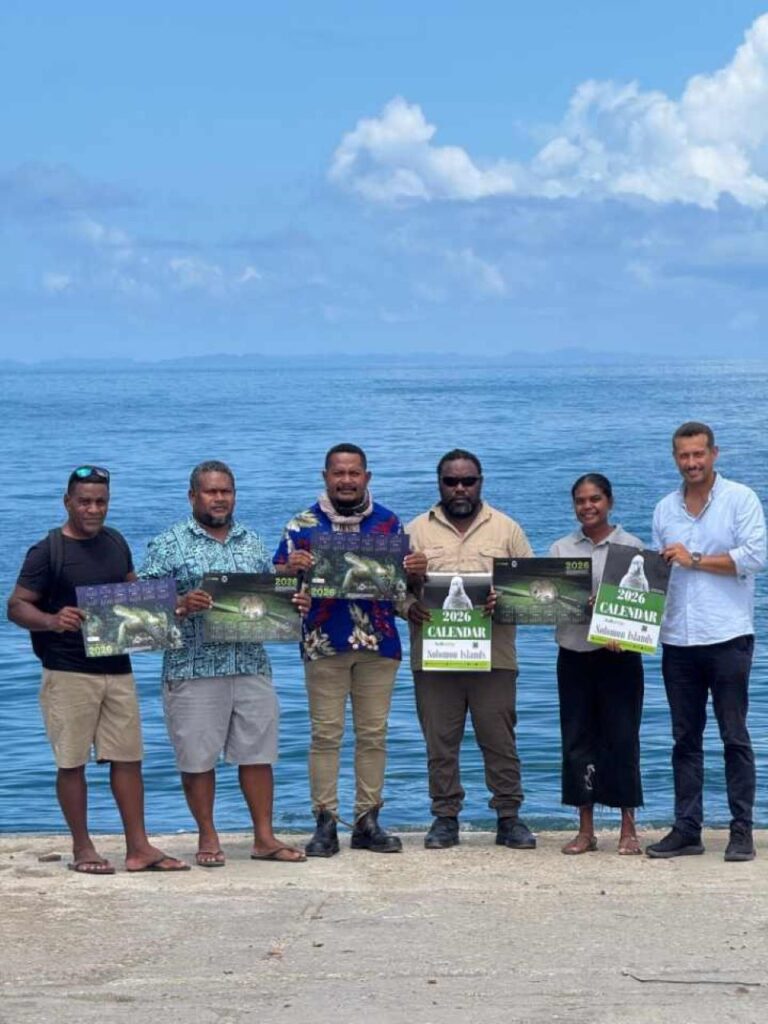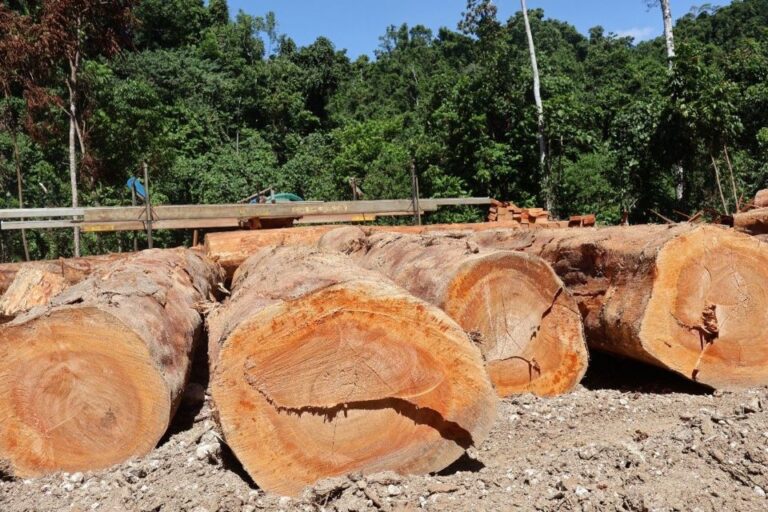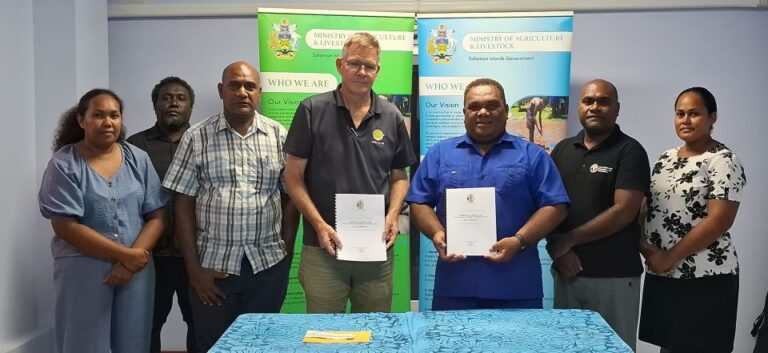BY LIVETT MYRNE COMFORT
Ms. LINA Dorovolomo’s passion for learning more about the natural environment since high school, took her to university to study science.
After completing a postgrad at the university of south pacific in Fiji, she joined the then, Honiara’s Youth @ Work monitoring Team.
She soon left the Youth program, as she said, she had to find a job in what she’s passionate about.
Ms. Dorovolomo, is now a project coordinator for the Ecological Solutions Foundation (ESF) at Gizo office. She organizes community consultations and workshops covering four provinces. Guadalcanal, Makira, Choiseul and Malaita.
She mediated with rural communities and tribes, working in conjunction with the line ministry and provincial environmental officers.
Her job involves regular tours to the provinces, probably a tiring task where she meets new people and learns new cultures and other things new to her.
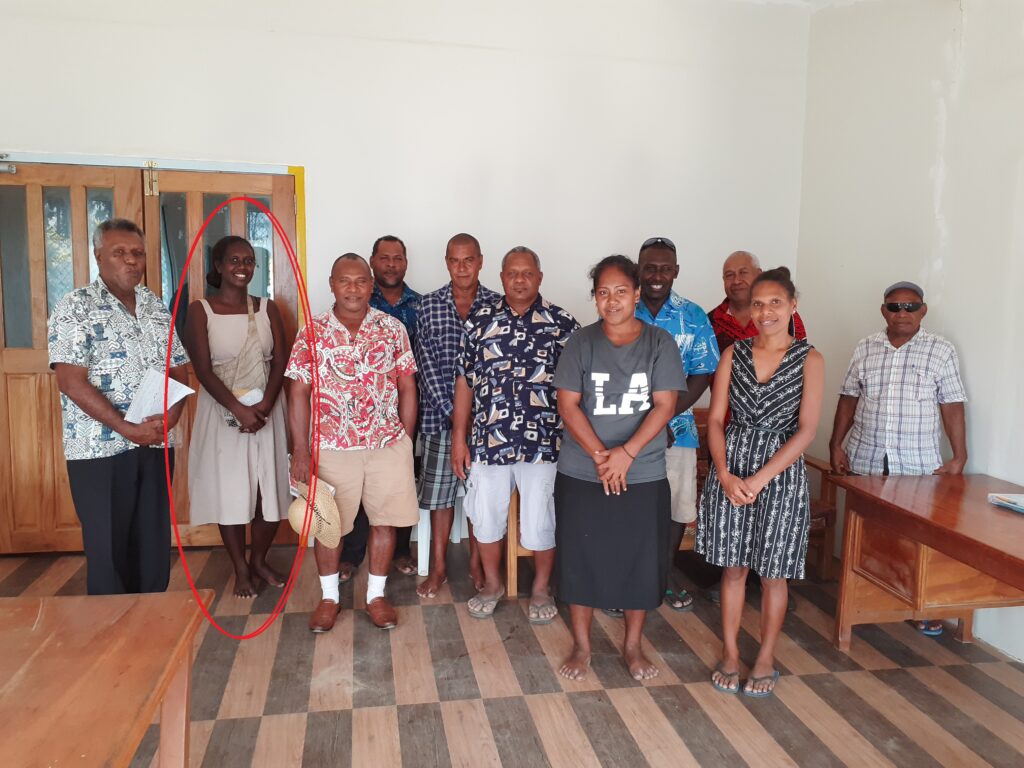
Conserving the natural environment is not only her role with ESF but an ingrained passion.
She’s been working hard to get communities to understand and appreciate the importance of protecting the natural environment for long term benefits, that present and future generations have to realize.
She pointed out the big challenge is logging, a destructive activity that causes deforestation, and despite being man-made is almost inevitable in the Solomon Islands.
The conservationist said, during her community talks she learned that majority of elders who are custodians of the land want easy money, so they fall for the loggers. She mentioned that elders said, they want to benefit from their resources, because they’re getting old and their times catching up.
Nevertheless, she said some people want conservation, but it’s not easy to twist people’s minds, especially on how to convince them to preserve the natural environment and motivate people to realize that the choice of conservation is essential to their sustainable livelihood.
She pointed out that her organization uses examples of successful conservation areas, like Arnavon Island between Isabel and Choiseul, and Tetepare Island in the western province.
However, Ms. Dorovolomo upholds that despite the challenges faced, in getting tribes to realize the sustainable benefits of conserving the natural environment, there are successful areas with projects ongoing.
“This job is challenging, but my passion motivates me, even though challenges are there, we’re also successful in some areas and we still have the motivation.” She maintains.
“Land is essential with people, and the benefit of conservation is long-term.” Even if they see it, they are not willing to wait, so when logging enters, places for conservation are destroyed.” She added.
She worked with a lot of men, as land is associated with culture and it involves elderly men in the communities, so even though she’s a girl she has to build trust with big men in the communities.
She said, she thought in a matrilineal society like Guadalcanal she would meet with women to settle land issues, however, she only consulted with men, as men are head of tribes in Guadalcanal, not as many people think. she also questioned how Guadalcanal is categorized as a matrilineal society, seeing that men control everything.
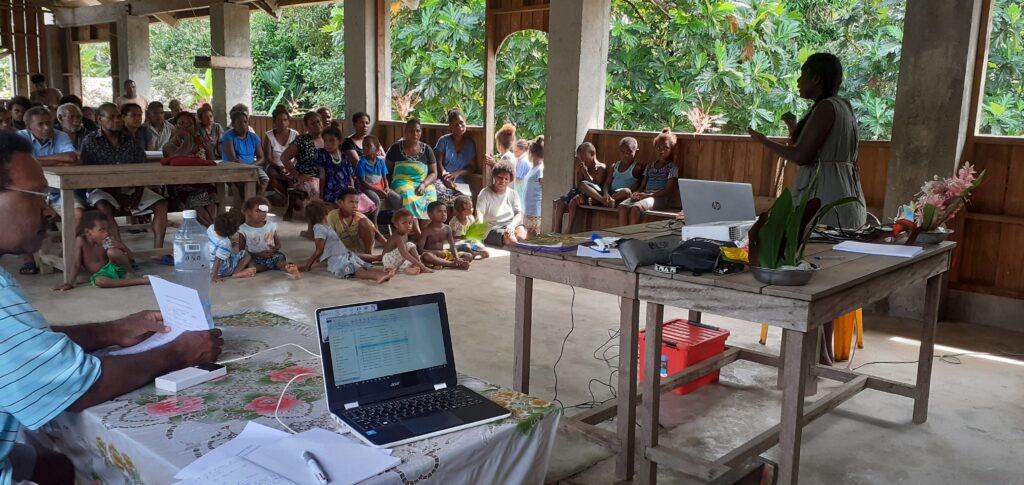
However, she had experienced different ways of approaches in the four provinces, as they have their distinctive cultures.
“I do background research through my colleagues from the provinces about their cultures in order to understand what to do and prepare in advance.” She said.
Ms. Dorolovomo said, Tribes and communities, especially in Choiseul province that have successfully conserved their land areas, are now beneficiaries of Nakau project which helps them to access carbon trade scheme.
She said some people returned to ESSI, after logging destroyed their land, seeking conservation projects.
“but we told them, we already moved on with other areas. For those who want to recover, we can only give them guidance and advice.” Tourism projects and carbon trade are only for naturally protected areas.”
Ms. Dorovolomo has been involved with seven conservation projects. she said, protected areas also have benefits for tourism, as traditional medicines, custom stories, tabu sites and genealogy are also preserved.
She recalled people grumbled amongst themselves when it comes to issue of customary land ownership. she did her best in explaining to them that her work is not to interfere with their customs, traditional values and land ownership, but to help them preserve their land and how they’re connected to it.
And as she pointed out, that’s also one of the most challenging parts of her work with tribes in the communities. Projects hold up because tribes claiming ownership are not able to reach a resolution, to settle claims in relation to how they’re traditionally connected to the land areas, identified for conservation.
So ESSI can’t move on with groups with unsettled issues, concerning land ownership.
The project selects communities with natural areas that have the highest number of endemics, means highest number of plants and animals which are natural. but it depends on landowners to allow their land for conservation.
ESSI identified Makira province with the highest number of endemic birds. This means Makira province is endowed with bird species only found on the Island.
“Protected areas come under the protected areas act 2010, and we implement the law to achieve the UN’s AICHI target,” she said. “We implement 10 percent of the forest of Solomon Islands.”
She said, there are alternatives for communities to choose from, rather than resort to logging, like engaging in honey projects as well as starting savings clubs. ESSI also prepares tribes and links them to partner organizations for livelihood projects.
Ms. Dorovolomo is a role model for young girls pursuing their dreams in life. She advises girls to take their time in life and not to rush into making decisions.
“I think many times in life, we girls face a lot of pressure in school and family, she said. people put us in a box and said, this is how we should be.”
“Take your time to find out who you are, what you are passionate about, what makes you happy and what you want in life and in a partner, she added.
“That way you can fully contribute to society, family, church and country.” Ms. Dorovolomo concluded.

